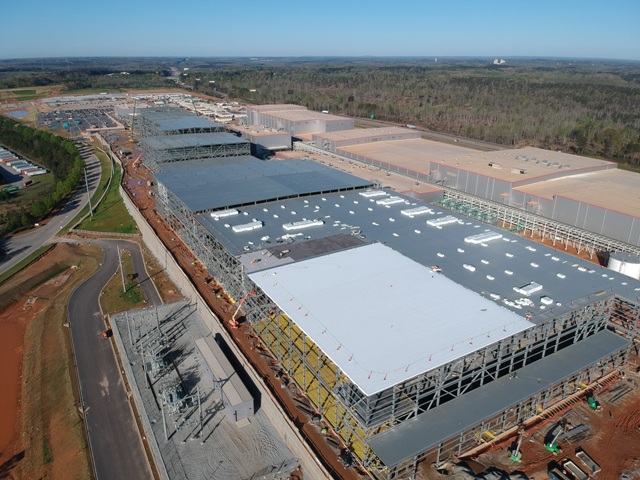
Ford to invest $3.5 billion to build LFP battery plant in Michigan
Ford announced it is investing $3.5 billion to build the country’s first automaker-backed LFP battery plant, offering customers a second battery technology within Ford’s EV lineup. This plant – called BlueOval Battery Park Michigan – initially will employ 2,500 people when production of LFP batteries begins in 2026. Ford will have the option to further grow its battery capacity at its Marshall, Michigan, plant, which will be part of a wholly owned Ford subsidiary. With this $3.5 billion investment, Ford and its battery tech collaborators have announced $17.6 billion in investments in electric vehicle and battery production in the United States since 2019, as part of the company’s commitment to invest over $50 billion in electric vehicles globally through 2026. In the next three years, these investments will lead to more than 18,000 direct jobs in Michigan, Kentucky, Tennessee, Ohio and Missouri and more than 100,000 indirect jobs, according to the methodology from a 2020 independent study.
“We are committed to leading the electric vehicle revolution in America, and that means investing in the technology and jobs that will keep us on the cutting edge of this global
transformation in our industry,” said Bill Ford, Ford executive chair. “I am also proud that we chose our home state of Michigan for this critical battery production hub.”
Diversifying and localizing Ford’s battery supply chain in the countries where it builds EVs will improve availability and affordability for customers while strengthening consumer demand. Ford is working to deliver an annual run rate of 600,000 electric vehicles globally by the end of this year and 2 million globally by the end of 2026 as part of its Ford+ plan. As the company rapidly scales EV production, introducing LFP batteries allows Ford to produce more electric vehicles and offer more choices to new EV customers, and helps support the company’s goal of an 8 percent EBIT margin for Model e by 2026. In addition to LFP batteries being less expensive to produce than NCM batteries, bringing this new LFP plant to America reduces traditional shipping and import costs. Building in Michigan, Ford will benefit from the Inflation Reduction Act – creating one of the lowest-cost U.S.-produced batteries when the plant comes online in 2026.
Information Source: Read More “
Energy Monitors , Electric Power , Natural Gas , Oil , Climate , Renewable , Wind , Transition , LPG , Solar , Electric , Biomass , Sustainability , Oil Price , Electric Vehicles,


